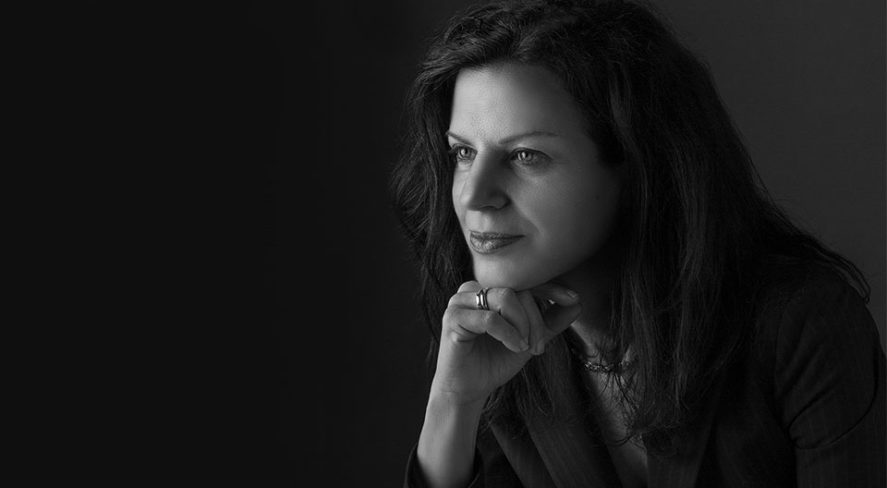Meet the Women in Security Forum Breakfast @ ISC West Speaker: Q&A With Juliette Kayyem

The Security Industry Association (SIA) is looking forward to its Women in Security Forum Breakfast @ ISC West on Friday, April 12, featuring insights from special guest Juliette Kayyem, a national leader in America’s homeland security efforts. Kayyem previously served as President Obama’s assistant secretary for intergovernmental affairs at the U.S. Department of Homeland Security and Massachusetts Governor Deval Patrick’s homeland security advisor; she is now the CEO of lifestyle company Zemcar and the founder of Kayyem Solutions. Kayyem serves as the Belfer Lecturer in International Security at Harvard Kennedy School, teaching new leaders in emergency management and homeland security, and an academic member of SIA through her work with Harvard. Kayyem is a regular on-air national security analyst and contributor for CNN, has hosted a national security podcast called The SCIF and has been a weekly featured analyst on Boston Public Radio, 89.7 WGBH Boston’s Local NPR.
SIA spoke with Kayyem about her security career, diversity in the security industry and how we can draw more women to the field.
What is the biggest challenge you’ve faced in your security career?
Juliette Kayyem: When I was younger, the challenge was really about proving my worth to the discussion. I wasn’t trained as a police officer or fire fighter; I’m a lawyer. And so ensuring that the professionals understood my value required being prepared, being present and taking advantage of opportunities as they came my way. As I had children, the biggest challenge was managing young kids with the demands of the field, including emergencies. I was blessed that my husband doesn’t travel for work; I can’t say I planned it that way, but it helped. And I also learned to give myself a break. The kids were going to be alright even if I missed moments I wished I hadn’t.
What are the most important factors to consider when working to mitigate and manage crises?
JK: It takes a commitment to engage all stakeholders at all times. People in operations tend to look through the prism of a traditional incident command structure. But the crises we face today impact communities we had no way of anticipating and their sense of resiliency. We need to listen to those concerns. I learned this during the BP oil spill. It was about not just a spill, but a way of life, the future of energy in our country and even the legacy of Hurricane Katrina. We need to be better responsive to those desires and inputs as well.
I also urge people in the field to understand politics and how they play in today’s crisis management. We can’t ignore it; this is a democracy after all. We also don’t have to be at the mercy of partisanship. But we have to be responsive to it. That’s a real challenge for those trained in a field that has prided itself on being outside the political scrum. But if you can find me a homeland security crisis that doesn’t have political overlays, then I want to work for you.
How can having a gender-diverse workforce facilitate strong security and emergency and crisis management?
JK: A gender-diverse workforce in any field is known to be better, stronger and more inclusive. In crisis management, that is key. Women can excel at community and societal engagement as much as they can in traditional response roles.
As Harvard’s Belfer lecturer, do you see any talent gaps between security industry needs and future security professionals?
JK: I am excited about the new generation coming up. My class in homeland security used to be almost all men; this year, in my crisis management class, it’s almost 50% women. That’s a small metric about the field. As for talent gaps, I do think that those who want to succeed in the future need a broad and keen understanding of how technology works and how it can be mastered. We can’t delegate that. It can be overwhelming, but from cybersecurity to artificial intelligence to new technology that can help us mitigate harm, we have to truly understand how it works and how it can be mastered.
What can security professionals – regardless of gender – do to support women in the security industry and draw more women to the field?
JK: I’m so glad for this question. Men are part of this effort from ensuring a respectable workforce to addressing harassment to providing opportunities to those who may have different skills or may be overlooked because they don’t remind the boss of himself when he was younger. For women, we need to support opportunities for each other, and I do think that is happening in meaningful ways from forums, informal groups and mentorships. A few years ago, I was one of two women on CNN who was a national security analyst. Now, they have a dozen in the law enforcement and national security arena, women who have expertise they can share. It’s just one metric, but an important one, because then others see what the profession can look like.
The SIA Women in Security Forum Breakfast @ ISC West will take place Friday, April 12, in Room 1001/1004 of the Sands Convention Center at 8:30 a.m. Learn more and RSVP.
The views and opinions expressed in guest posts and/or profiles are those of the authors or sources and do not necessarily reflect the official policy or position of the Security Industry Association (SIA).
